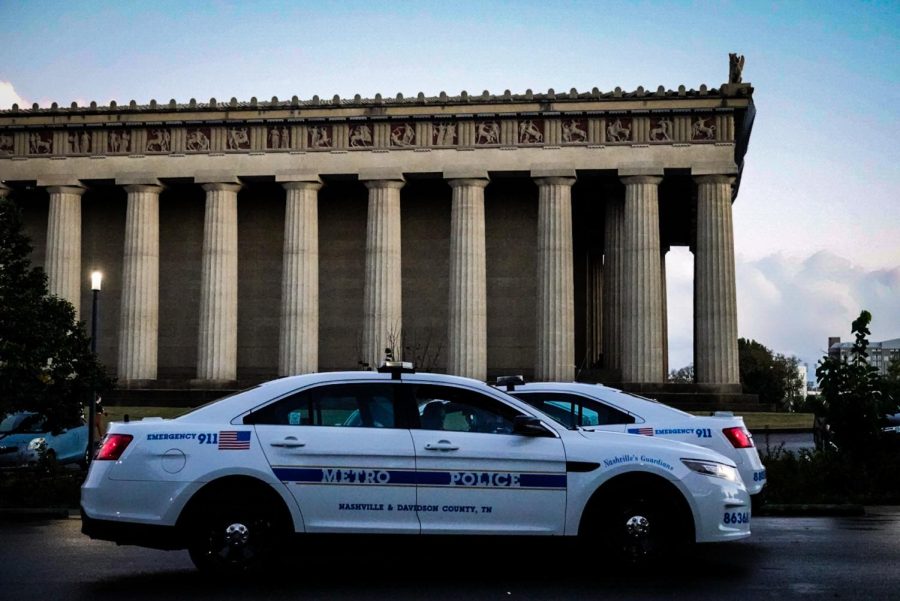“How did he even get in?”
“Oh my god”
“Who do I contact?”
“Can someone explain what happened?”
“I’m so disturbed…”
These messages are just a small sample of the panicked texts sent in GroupMes during campus crises this semester. Students’ knowledge about security threats is often sourced from a slew of GroupMe messages, anonymous forums like Fizz, our staff’s reporting or even word of mouth. Meanwhile, the rise of security threats on college campuses has never been more apparent. In the past year alone, college students across the country have mourned tragedies at the University of North Carolina-Chapel Hill and Michigan State University, among others. These crises underscore the need for accurate, prompt and authentic crisis communication from our campus leadership. Yet, Vanderbilt’s administrative responses to safety threats remain sparse and inconsistent.
Vanderbilt, it is past time to step up our crisis communication.
Most recently, incidents such as an unattended firearm found in the Blair School of Music and a trespasser entering E. Bronson Ingram College have gone unacknowledged by the university at a large scale. Besides brief responses to The Hustler’s outreach, university administrators sent no notice of the trespasser incident to students. Similarly, they sent a delayed — after The Hustler’s coverage and after the threat had been resolved — notice of the unattended firearm only to Blair students. But this phenomenon is unfortunately not new on our campus.
If our university leaders can find the time and resources to send detailed emails to students about a 5-point drop in university rank, surely they can send us alerts during or after threats to our safety.
In November 2022, a shooting occurred at Ascension St. Thomas Hospital, less than a mile from campus. No emails or AlertVU notifications were sent. Later that year, attacks against VUMC’s gender-affirming care attracted non-Vanderbilt-affiliated, protestors to our campus and resulted in the circulation of pamphlets accusing Vanderbilt of “fascism.” According to the university’s own solicitation guidelines, distribution of materials by non-Vanderbilt individuals is strictly prohibited — the university did not make any outreach to students about the incident. As transgender students expressed their fears of navigating their own campus, the university once again sent no security notices or guidelines.
After responding to a shooting at Michigan State University with a ChatGPT-written email, the university failed to notify students about the shooting at The Covenant School within four miles from campus until eight hours after shots were fired. Student reporters at The Hustler reported about the shooting within an hour of its occurrence and even sent an email to students later that afternoon about the tragedy. As the campus community heard a cacophony of sirens, we received radio silence from the administration until an evening email from Chancellor Daniel Diermeier. Numerous students told Hustler editors that they had found out about the shooting from The Hustler’s email sent four hours after the shooting — an unimaginable and unacceptable burden for student journalists to bear.
The pattern is clear. Without timely, transparent and authentic communication from the university, students and community members are forced to rely on student reporters or informal information channels to gauge their safety and security on campus. This system creates a breeding ground for speculation, panic, misinformation and an unequal distribution of information. In addition, it places an undue burden on student journalists.
The university’s lack of crisis communication is not the result of a drought of institutional resources. In some instances, the university has been capable of sending multiple alerts for a single threat. If our university leaders can find the time and resources to send detailed emails to students about a 5-point drop in university rank, surely they can send us alerts during or after threats to our safety.
Beyond communication lapses, Vanderbilt’s Emergency Operations Response Plan has not been updated since its last release in 2019. Granted, the university announced in June 2023 the launch of the “Secure Dores” project, focused on improving VUPS’s ability to monitor and remotely lock doors and entryways around campus. This project was slated to be a part of a larger campus-wide security review convened by an administrative working group to complete “a comprehensive review of Vanderbilt’s emergency preparedness, particularly in response to an active shooter scenario.” Most recently, the working group entered into an agreement with a security consulting firm, AT-RISK International, to evaluate Vanderbilt’s emergency response. A university representative stated that Vanderbilt expects to share initial updates about the review’s results in later this semester or early in Spring 2024.
While these are critical steps, crisis communication on campus, or lack thereof, has seen little change since many of us left campus last spring. These security reviews present an important opportunity to evaluate and enhance our safety, but improvements in crisis communication must be an important part of them.
Campuses across the country are grappling with emerging safety threats and how to communicate them to their communities, but Vanderbilt is falling behind.
Calista Morrison, a junior at Belmont University just down the road, explained that her campus has similarly experienced crises such as intruders in residential buildings, shooting threats and theft. In the over two years she has lived on campus, Morrison said alerts about crises have significantly improved. According to Morrison, Belmont students similarly received no urgent communication from the university when the Covenant School shooting took place, but on-campus security communication became more frequent afterward.
“Because of these incidents that have happened over the last two years, they’ve [Belmont administration] have gotten better at emailing, having text alerts,” Morrison said.
Sophie Stachurski, a senior who transferred from Georgetown University after her first year, continues to receive Georgetown’s safety alerts. She explained that the alerts from her prior institution are more common and “address a wider variety of issues.”
“To name a direct parallel, I received at least a few notifications [from Georgetown] about individuals entering dorm buildings in the past year,” Stachurski said. “Recently, we [Vanderbilt students] were not notified about a man breaking into EBI.”
Stachurski acknowledged that keeping students informed without raising panic can be a challenge, but notifications are also critical to ensure that students are prepared for potential future threats and are aware of safety measures being put in place.
“We can’t change the fact that ‘alert-worthy’ things happen, so it’s better if we know about them than to be in the dark and potentially encounter or be unprepared to encounter a dangerous situation,” Stachurski said.
Ultimately, we recognize that there are a number of challenges to communicating with a wide campus community when threats of any scale arise. Administrators have to be careful not to alarm students unnecessarily, but there are ways to keep our community informed and safe without doing so. For instance, after VUPD addressed the EBI intruder situation, it would have been appropriate to at least send an email to students informing them of the occurrence, sharing best future avoidance practices and notifying them of preventative policy changes.
Not every crisis situation warrants an AlertVU notification. However, emails from residential or school-specific administrators can and should also contribute to keeping the student body informed and secure.
As a student-centered publication at Vanderbilt, we understand the difficulties in communicating about safety threats of crises with the campus community. In our newsroom, we prioritize ensuring that students are receiving prompt, accurate and up-to-date information to curb the spread of misinformation and panic in times of crisis. We implore Vanderbilt to follow their students’ lead.







